Contact Us
sanantonio@fmma.org
Follow Us:
Our Blogs
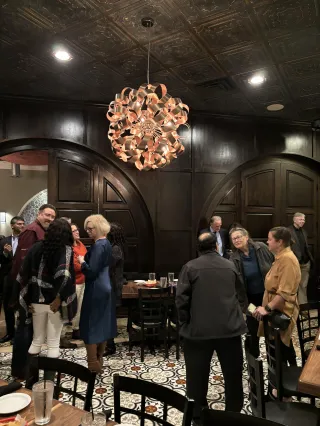
Shaping the Future of Free Market Healthcare
Read the details of our holiday dinner! ...more
Meetings
November 21, 2023•1 min read
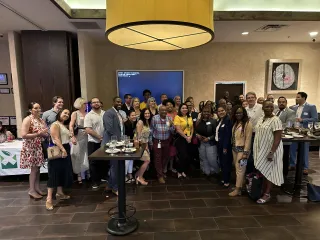
End of Summer Mixer
Read about The San Antonio Free Market Medical Association's first ever mixer! ...more
Meetings
September 07, 2023•2 min read
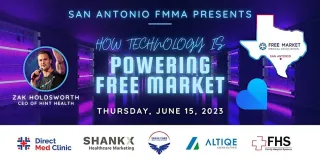
How Technology is Powering the Free Market with Zak Holdsworth
In a recent meeting, the San Antonio Free Market Medical Association highlighted the growing impact of technology disrupting traditional healthcare and reducing costs with guest speaker Zak Holdsworth... ...more
Meetings
June 21, 2023•2 min read
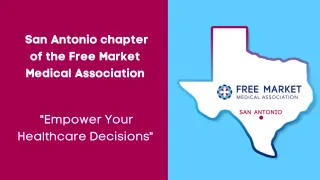
Empower Your Healthcare Decisions
We, the San Antonio chapter of the Free Market Medical Association, hosted our meeting "Empower Your Healthcare Decisions" with the goal of discussing and finding solutions to the overwhelming cost of... ...more
Meetings
May 05, 2023•2 min read
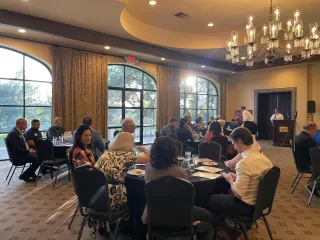
An Employer's Journey to Affordable Healthcare
The San Antonio Free Market Medical Association Chapter hosted their 4th quarterly meeting on November 18. The evening was packed with information about affordable healthcare for employer's looking to... ...more
Meetings
December 21, 2022•3 min read
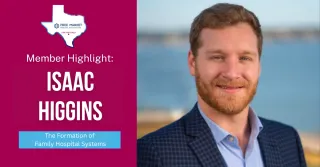
San Antonio FMMA Member Highlight: Isaac Higgins
The purpose of our member highlights is to shine a spotlight on outstanding individuals who form part of a groundbreaking network as members of the revolutionary San Antonio Free Market Medical Associ... ...more
Member Highlight
December 06, 2022•14 min read
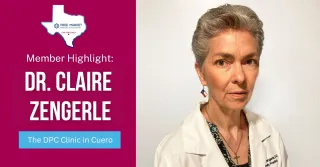
San Antonio FMMA Member Highlight: Dr. Claire Zengerle
Read about our November 2022 FMMA Member Highlight: Dr Claire Zengerle! The purpose of our member highlights is to shine a spotlight on outstanding individuals who form part of a groundbreaking networ... ...more
Member Highlight
October 27, 2022•11 min read
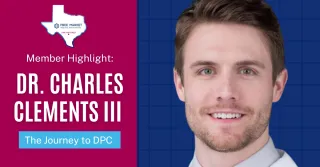
San Antonio FMMA Member Highlight: Dr. Wes Clements of Tailored MD
Read about our June 2022 FMMA Member Highlight: Dr Wes Clements! The purpose of our member highlights is to shine a spotlight on outstanding individuals and their work. ...more
Member Highlight
June 09, 2022•12 min read
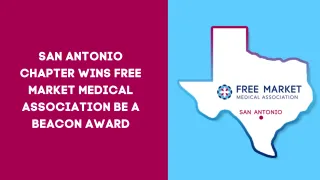
San Antonio Chapter Wins Free Market Medical Association 'Be a Beacon' Award
Dr. Keith Smith, Dr. Roger Moczygemba, Antréa Ferguson, Shankar Poncelet, Jay Kempton at the Free Market Medical Association 2022 Annual Conference, Alternative Nation, where the San Antonio chapter w... ...more
Annual Conference
June 01, 2022•2 min read
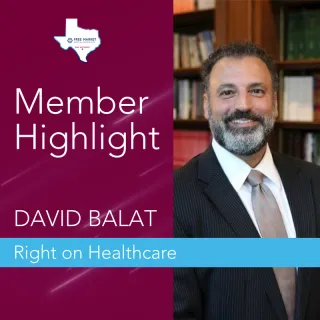
San Antonio FMMA Member Highlight: David Balat
The purpose of our member highlight is to shine a spotlight on outstanding individuals who form part of a groundbreaking network as members of the San Antonio Free Market Medical Association. For our ... ...more
Member Highlight
February 18, 2022•6 min read
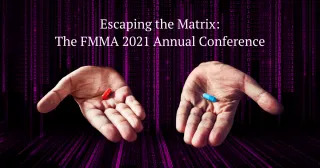
Escaping the Matrix: The FMMA 2021 Annual Conference
Ignoring the disappointment recently released, The Matrix (1999) remains a classic, iconic cinematic piece that revolutionized the film industry and our thinking–even about healthcare. ...more
Annual Conference
January 04, 2022•5 min read

San Antonio FMMA Discusses Creating a Free Market Surgery Center
San Antonio is creating a free market surgery center open to everyone with cash pre-negotiated pay options. Read about what CorePath's MD Director Aamir Ehsan, MD, Randy Reynolds, Senior VP of HealthC... ...more
Meetings
November 02, 2021•9 min read
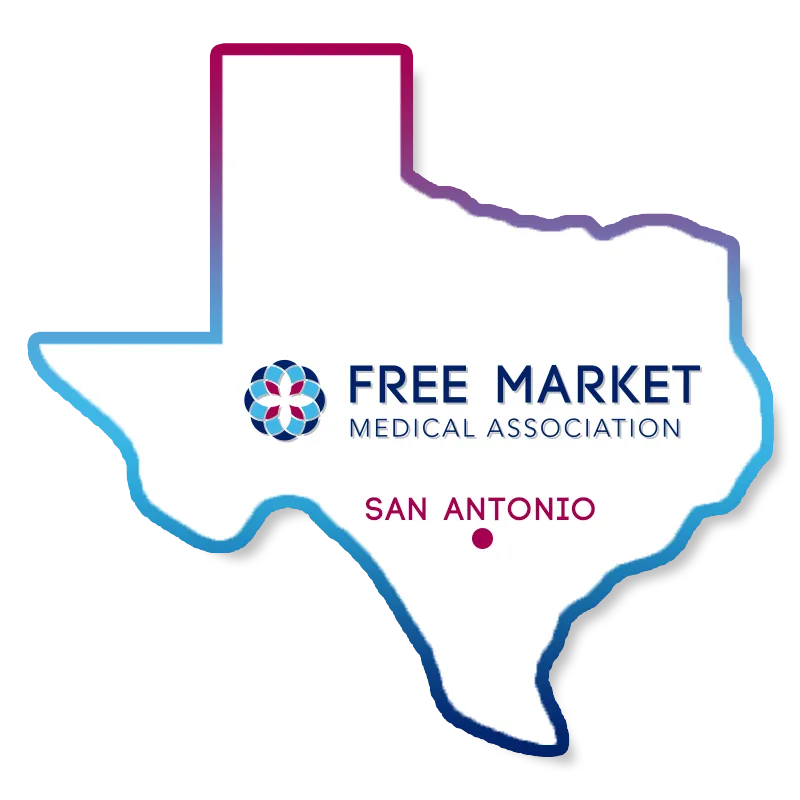
Follow Us
Follow Us
© Copyright 2024. San Antonio Free Market Medical Association. All rights reserved. Site by SHANKX.